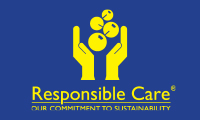If only there would be a way to insure against your best people leaving.

A recent survey of almost 1400 employers and employees by recruitment company Hudson found 41 per cent of employees were actively seeking a new job and another 34 per cent were doing so passively.
In addition, there was a 20 percent increase in the number of people seeking new roles compared to the first half of the year.
The main reasons for wanting to leave? Boredom and lack of career progression!
Contrary to popular opinion, boredom is not an expression of having nothing or too little to do. Boredom arises when what you do has no or little meaning for you.
Unfortunately, there are still managers who claim no responsibility for employees’ engagement and experiences of boredom. Some supervisors continue to believe that motivation is largely about money, perks and benefits – we know, however, that this doesn’t paint the complete picture.
In addition to fair pay, people expect:
- challenging and meaningful work
- a chance to learn and grow (professionally and personally)
- great co-workers
- recognition and respect
- a boss who is ‘with’ them and not ‘against’ them.
Managers, supervisors and team leaders can clearly influence these factors. Of course, senior leadership and organisational policies matter too – and so does the general life attitude of each employee who needs to take responsibility for their own satisfaction.
Any way you look at it, your most valuable employees (those high potentials as well as your solid performers) will leave (physically or psychologically) if they are not growing and having meaningful experiences.
Because people differ in what they see as ‘meaningful’ and as ‘career’, the best thing a leader can do is ask the right questions – questions that explore, rather than looking for confirmation of established assumptions.
Avoid assumptions
Typical assumptions are:
- they are happy in their current job – after all, they never said anything else
- they can’t really expect to move up the career ladder, they just don’t have the educational background needed
- he said that’s all he ever wanted to do – so why change things for him?
- we have a flat organisational structure, and without a degree they can’t move into management anyway
- we can’t all be leaders, you must have doers and that’s what they applied for
- I think she is assertive enough to tell me when she wants something, so I will wait for her to speak up
- if I support their growth, they will leave and I have to start again.
Leaders that are ‘with’ their people will ask, dig deeper and listen rather than assume and jump to conclusions.
At times it takes creativity and thinking outside the square of ‘what we have always done’ to take the action needed to help create meaning and growth opportunities. Companies that focus on an entire culture of career growth and learning outperform their peers in innovation, long-term growth, and employee retention.
Helping employees reach their goals, find meaning in their work and stay engaged with the organisation can mean helping them consider moves they may not have taken seriously before. Ask key questions to help them see what they could gain by trying a move that is not simply a vertical step. Together leaders and employees might surface choices that had not previously been considered.
One key aspect of experiencing recognition and great co-workers is having fun at work. However, when looking at previously not considered possibilities, it is not unusual to fall into the trap of taking myths for reality.
Three common myths that need debunking are:
It takes material and a budget to have fun at work
When asked to remember fun times at work, people tend to remember occasions that cost no or very little money – decorating the workspace of a colleague for his/her birthday, verbal sparring with brainy/funny colleagues etc.
Fun means laughter
Often people can have fun at work by working on an intriguing task, collaborating with wonderful team mates or building something new.
Fun time at work will compromise results
Research verifies that fun-loving environments are actually more productive than their humourless counterparts. A fun break can re-energise employees and ready them for the next concentrated effort.
Like most relationships, there really is no’ insurance’ that prevents employees from leaving either physically or psychologically. What exists, however, is the knowledge that all employees are human beings looking for meaning in their daily work, for chances to learn and develop, opportunities to relate to others, to be recognised and respected.
Leaders who see their employees as people rather than as ‘resources’ to do a job are more likely to grow and hold on to their valuable employees – and in turn themselves experience challenging and meaningful work with chances to grow, enjoy great co-workers, gain respect, and have fun along the way.
Dr Andrea Polzer-Debruyne is senior consultant at PeopleCentric, a group of psychologists that works with organisations in a variety of industries towards increasing individual and organisational capabilities, employee engagement and leadership development
Try asking your employees these questions:
What do you enjoy most about your job?
What could be changed in your job to make it more satisfying?
Which of your current tasks is the most routine?
What other areas of the company are you interested in?
Whose job would you like to learn more about?




